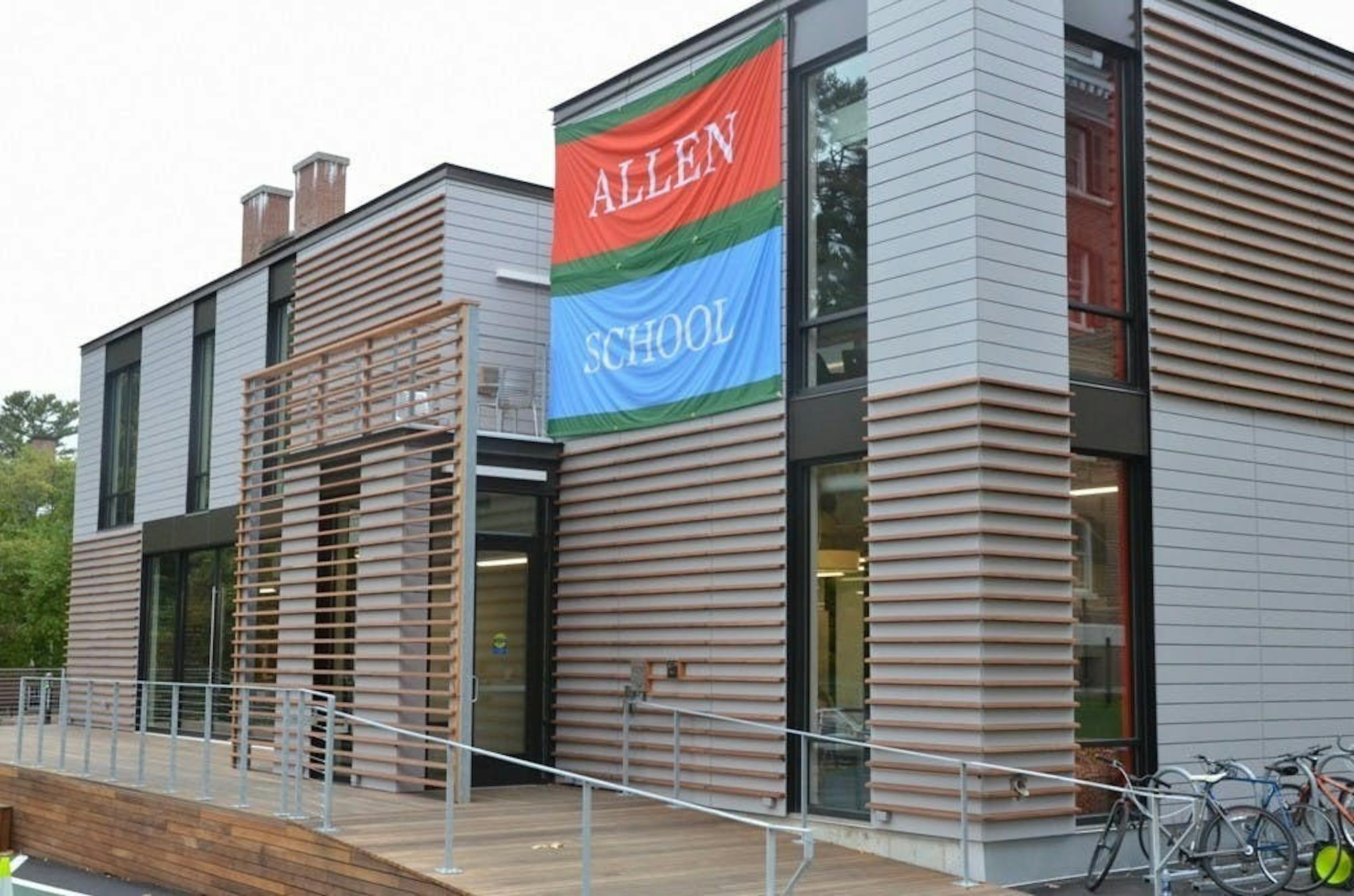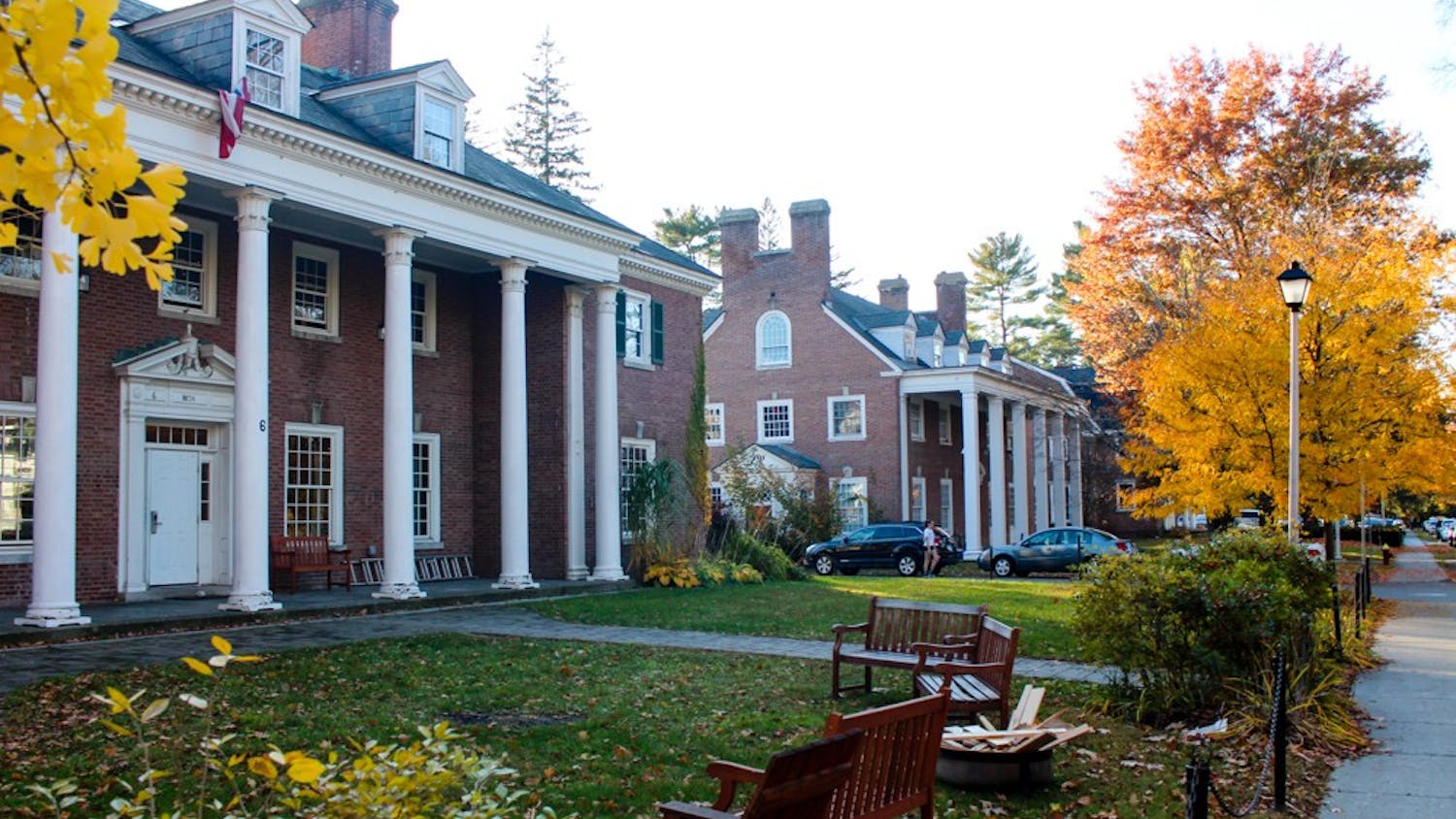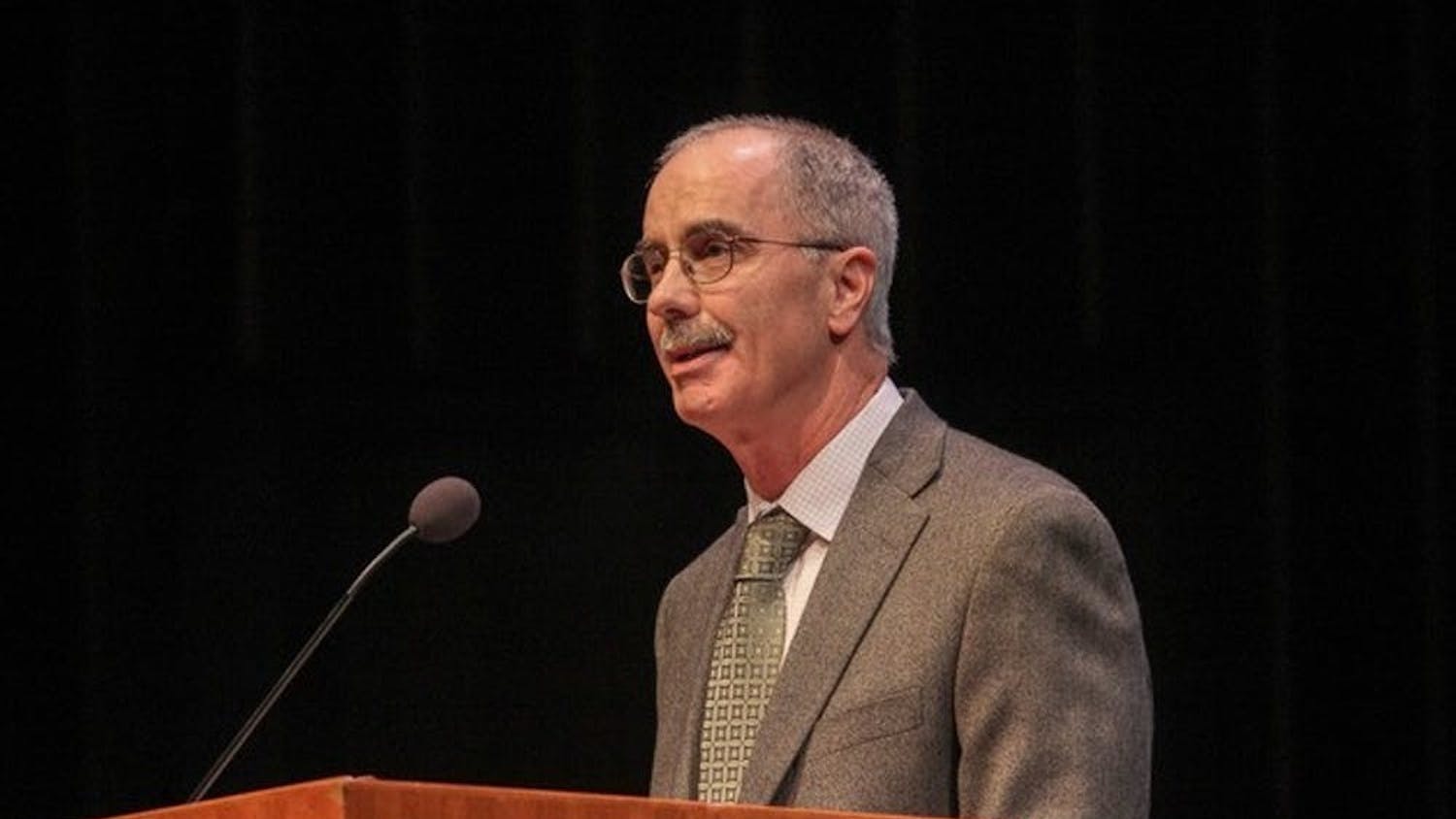This article is featured in the 2020 Freshman special issue.
Widely seen as an attempted social alternative to Greek spaces, Dartmouth’s house community system sets out to connect students with each other through shared residential halls and social events. However, some students have criticized the system for falling short of this goal and, in some cases, introducing social barriers between students.
First implemented in the fall of 2016, the house communities were the culmination of an effort by the College to prevent community issues such as “high-risk drinking, sexual assault and lack of inclusivity,” School House professor Craig Sutton said.
Before freshmen arrive on campus in the fall, they are sorted into one of six house communities — Allen, East Wheelock, North Park, School, South and West — which correspond to specific dorms on campus. Students may only room with people within their house community.
In its pre-pandemic form, Sutton said, the house system was an opportunity for social mixing. As School House professor, Sutton works with the Office of Residential Life to host house-wide programming and social events, such as trips, house dinners and speakers. In addition, the houses allow the faculty to interact more closely with students. According to the New Student Orientation website, starting Sept. 9, the Class of 2024 will be able to engage in house community events online.
The ability to “actually get to know” one’s professors is a benefit of the Dartmouth experience, and the opportunities presented by the house system allow both the students and the faculty to cultivate the sort of relationships that Dartmouth advertises, Sutton said.
According to Sutton, the process of researching prevalent issues on campus — binge drinking, sexual violence and exclusivity — started in 2014 with the creation of the Moving Dartmouth Forward presidential steering committee. Throughout the year, students and other campus stakeholders provided input on the decision to create a house system.
“A lot of it was born out of interviews with students,” Sutton said. He explained that many community members felt that although Dartmouth did a good job of welcoming the students, the D-Plan left many feeling disconnected from the community by the beginning of sophomore year.
“The house communities were born as a way to help mitigate some of the churning that happens because of the D-Plan,” Sutton said.
House communities offer alternative social spaces, receive mixed reviews
Some current students, however, report feeling dissatisfied with the state of the house community system. In January, a survey conducted by The Dartmouth found that 73 percent of students did not feel a “strong sense of community” with other students in their house”
Yuna Kim ’22 said that although she supports the College’s effort to maintain social bonds after freshman year, she does not find the house system to be particularly effective.
“The D-Plan makes it hard to foster a sense of continuity, and I think Dartmouth does a good job at addressing that to the best of their ability,” she said. “But I think the house system has very little to do with it.”
Kim said she believed that the house communities fall short of their goal due to the degree of influence the College has on the operations of their social programming. A member of Chi Delta sorority, she said she sees the house system as an attempt to provide a non-Greek social space for students, but part of the allure of the Greek system is its isolation from faculty.
“I think that there are a lot of people that do find community [in the house system],” she said. “… However, I think that the fact that it is so heavily monitored by the College plays a role in why people don’t want to engage with it.”
Some students, despite mixed experiences with the house system itself, agreed with the sentiment behind its creation.
Peyton Gordon ’23 said that she thinks the idea behind the house system “com[es] from the right place.”
“I think it’s trying to institute not only an alternative social space, but also an alternative social group to Greek life,” Gordon said.
Soham Maiti ’23 said he believes that the house system does not have a large impact on the social life of Dartmouth students, but he noted that it was helpful at the beginning of his freshman year.
“It was good for the first two or three weeks because it helped me actually start to get to know people and … get involved with some of those [house community] events,” he said. “As the year progressed, I got less and less involved.”
Maiti found that the house system granted him a social starting point from which he could branch out. Despite that, he said most of his current friends came from the ultimate frisbee team and the Dartmouth Symphony Orchestra rather than from his house community.
Gordon found the importance of the house system in her Dartmouth experience to stem mainly from social bonds with students in her residence hall.
“Even if you’re not really feeling affiliated with the house community, you are feeling community within the dorm,” Gordon said.
Dorm access restrictions, distance spur dissatisfaction
In the fall of 2019, the College implemented a dorm access restriction policy, limiting the access of a student’s key card to residential buildings within their house communities. In a survey conducted by The Dartmouth, students expressed widespread discontent with the policy — 80 percent or more of each class, besides the Class of 2023, said they “strongly opposed” it. The restriction was scaled back later that term, only remaining in force between 9 p.m. and 6 a.m.
Gordon said that while she believed the restrictions were an effort to foster community within the houses, the policy was an ineffective means to do so and “seriously concerned” her. She said that she felt it was important to lift dorm restrictions at night, when students are often most vulnerable to sexual violence.
“As a girl, I would [want to be able to] get into a dorm … especially the fact that they were closed after [9 p.m.] — that’s when it’s actually dangerous,” she said.
Maiti said he believed that what prevents the longevity of the house system’s importance in the freshman experience is the lack of enthusiasm.
“Those types of things [like dorm access restrictions] probably don’t need to exist at all, and if they want to push for a deeper housing community they should really start with … spirit,” he said. “I don’t think there’s that much spirit to the way Dartmouth does it.”
The physical spacing of the house communities, according to Kim, contributes to the disconnect students may feel with their house.
“For example, West House lives in so many different buildings across campus [during freshman year] that it's not like you're actually interacting with the people that are supposedly in the same community as you — it’s a very geographical thing,” she said.
Ideally, according to Kim, the house communities would be “more organic and natural” if they were smaller groups with residential proximity.
Despite mixed feelings from current students, some incoming freshmen have been optimistic about the role the house communities would play in their social lives. Grace Chen ’24 said that the house system was actually a factor that attracted her to Dartmouth.
“I know that Dartmouth has a great community, and [the house system] is just another factor that added to that,” she said.
Jessica Chiriboga ’24, meanwhile, saw the remote term as an opportunity for the new class to become more involved with the house communities.
“This is sort of a fresh start for all of us. … Whatever we want housing to be, we can define it,” she said.
Not all are so optimistic, however. Charlie Knight ’24 said he does not expect his house to have a large impact on his Dartmouth experience.
“I don’t think I’m going to need an outlet in order to make friends or create communities. … I don’t foresee myself taking too much advantage of this system,” Knight said.
He added that he would like to meet people “in ways that are a little more natural,” rather than through the “involuntary” community created by the house system.




